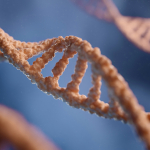FCS Awareness Day Date in the current year: November 6, 2026
 Familial Chylomicronemia Syndrome Awareness Day, commonly known as FCS Awareness Day, is observed annually on the first Friday in November. The day was created to raise awareness of an ultra-rare genetic disease, which is characterized by dangerously high triglyceride levels.
Familial Chylomicronemia Syndrome Awareness Day, commonly known as FCS Awareness Day, is observed annually on the first Friday in November. The day was created to raise awareness of an ultra-rare genetic disease, which is characterized by dangerously high triglyceride levels.Triglycerides play an important role in the body. They store energy in the form of body fat and help transport fat-soluble vitamins through the bloodstream. Thanks to enzymes called lipases, the body can utilize stored fats for energy by breaking down triglycerides into their two main components: free fatty acids and glycerol. If one of these enzymes does not function properly, triglycerides accumulate in the body and cause health problems.
Familial chylomicronemia syndrome (FCS), also known as lipoprotein lipase deficiency, is an ultra-rare genetic disorder caused by a mutation in the gene that encodes lipoprotein lipase. This mutation affects the breakdown of dietary fat and causes high triglyceride levels. The name “familial chylomicronemia syndrome” reflects the fact that the disorder is inherited and results in high levels of chylomicrons, which are lipoprotein particles that consist mostly of triglycerides.
Nearly 100 mutations have been associated with FCS. It is estimated that one in 500 people carries one of these mutations, though only one in 100,000 to one in one million people has the disorder. This is because FCS is inherited in an autosomal recessive pattern, meaning a person needs two copies of the mutated gene to develop symptoms.
The first symptoms of FCS typically appear in infancy or early childhood. These symptoms include failure to thrive and colicky pain. Milder cases may manifest during adolescence or adulthood. In women, the initial manifestation of FCS may be triggered by a first pregnancy or estrogen use.
Common symptoms of FCS at all ages include recurrent abdominal pain, liver and/or spleen enlargement, xanthomas (yellowish cholesterol deposits under the skin), lipaemia retinalis (an eye disease), and, in severe cases, pancreatitis. In the long term, unmanaged FCS increases the risk of cardiovascular disease, diabetes, and pancreatic insufficiency.
Like most genetic diseases, FCS is currently incurable. A gene therapy treatment was tested but proved to be commercially unsuccessful. Treatment focuses on controlling triglyceride levels to prevent complications. Patients with FCS are advised to consume less than 10-20 grams of fat per day, avoid added sugars, and abstain from alcohol.
In this context, “fats” refers to all types of fat, including those found in vegetable oils, nuts, seeds, olives, avocados, egg yolks, and high-fat dairy products. Since the body needs dietary fat to obtain energy and fat-soluble vitamins, patients with FCS are often prescribed MCT oil, which contains medium-chain triglycerides that do not require lipoprotein lipase for metabolism.
Familial Chylomicronemia Syndrome Awareness Day (FCS Awareness Day) raises awareness of this rare disease and its impact on patients’ lives. Every year, FCS awareness organizations host the FCS 10g Fat Challenge, which encourages people to try eating only 10 grams of fat for one day, as patients with FCS must do every day.
- Category
- International Observances
- Tags
- FCS Awareness Day, Familial Chylomicronemia Syndrome Awareness Day, international observances, awareness days, rare diseases